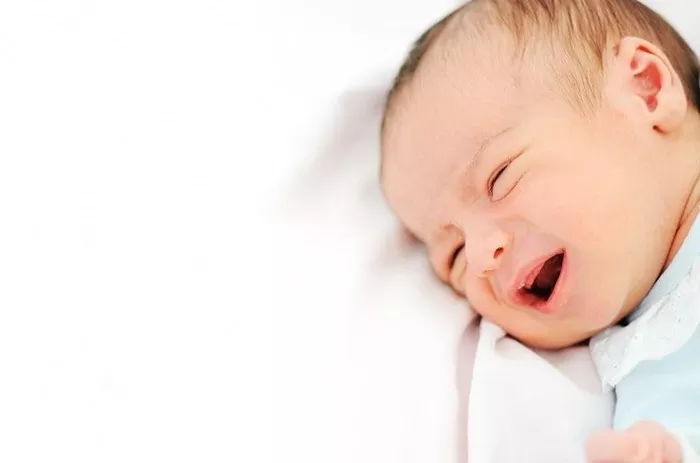Hiccups are a common occurrence in newborns. Parents often wonder if these hiccups indicate that their baby has gas. This article will explore the relationship between hiccups and gas in newborns, examining possible causes, preventive measures, and when to seek medical advice.
Understanding Newborn Hiccups
What Are Hiccups?
Hiccups are involuntary contractions of the diaphragm. These contractions are followed by a quick closure of the vocal cords, producing the characteristic “hic” sound.
Frequency of Hiccups in Newborns
Newborns often experience hiccups several times a day. This is normal and usually not a cause for concern. Hiccups can start even before birth, as early as the second trimester.
Duration of Hiccups
Hiccups in newborns typically last for a few minutes to an hour. They usually resolve on their own without any intervention.
Possible Causes of Hiccups in Newborns
Swallowing Air
When newborns feed, they can swallow air. This can lead to hiccups. Bottle-fed babies are more prone to swallowing air than breastfed babies.
Overfeeding
Feeding too much or too quickly can stretch the baby’s stomach. This can cause the diaphragm to contract, leading to hiccups.
Temperature Changes
Sudden changes in temperature can trigger hiccups in newborns. For example, moving from a warm to a cool environment might cause hiccups.
Excitement or Stress
Excitement or stress can stimulate the diaphragm, causing hiccups. Although newborns are less likely to experience emotional stress, loud noises or sudden movements can startle them.
SEE ALSO: Is Hiccups Good for Newborns?
The Link Between Hiccups and Gas
Do Hiccups Indicate Gas?
Hiccups are not always a sign of gas. While swallowing air during feeding can lead to both hiccups and gas, hiccups alone do not necessarily mean the baby has gas.
Symptoms of Gas in Newborns
Gas in newborns can cause fussiness, crying, and discomfort. The baby might pull their legs up towards their stomach and have a distended abdomen. Unlike hiccups, gas is often accompanied by burping and flatulence.
Distinguishing Hiccups from Gas
It is important to distinguish between hiccups and gas. Hiccups are usually harmless and self-resolving, while gas can cause significant discomfort. If the baby is content and not showing signs of distress, the hiccups are likely not related to gas.
Preventive Measures
Proper Feeding Techniques
Using proper feeding techniques can help reduce the likelihood of both hiccups and gas.
Breastfeeding Tips
Ensure the baby has a good latch to minimize air swallowing.
Burp the baby halfway through and after feeding.
Feed the baby in an upright position.
Bottle-Feeding Tips
Use bottles designed to reduce air intake.
Tilt the bottle to keep the nipple full of milk.
Burp the baby frequently during and after feeding.
Feeding in Small Amounts
Feeding the baby smaller amounts more frequently can prevent overfeeding, reducing the risk of hiccups and gas.
Keeping the Baby Upright
Holding the baby upright for 20-30 minutes after feeding can help prevent hiccups and gas by allowing air bubbles to rise and be expelled through burping.
Avoiding Sudden Temperature Changes
Keeping the baby in a stable temperature environment can help prevent hiccups caused by sudden temperature changes.
Home Remedies for Hiccups
Burping the Baby
Burping the baby can help release trapped air, potentially stopping the hiccups. Gently pat the baby’s back until they burp.
Offering a Pacifier
Sucking on a pacifier can help relax the diaphragm and stop the hiccups.
Giving a Little Water
For babies older than six months, a small amount of water can help stop hiccups. Do not give water to babies younger than six months without consulting a pediatrician.
Rubbing the Baby’s Back
Gently rubbing the baby’s back can soothe them and help stop the hiccups.
When to Seek Medical Advice
Persistent Hiccups
If the hiccups persist for more than a few hours or occur frequently, consult a pediatrician. Persistent hiccups can sometimes indicate an underlying medical condition.
Accompanied by Other Symptoms
If hiccups are accompanied by vomiting, refusal to eat, or severe distress, seek medical advice. These symptoms can indicate reflux or other gastrointestinal issues.
Concerns About Feeding
If you are concerned about your baby’s feeding habits or they seem to be in discomfort frequently, it is best to consult a pediatrician.
Conclusion
Hiccups are common in newborns and usually not a cause for concern. While they can be linked to swallowing air during feeding, they do not necessarily indicate that the baby has gas. Proper feeding techniques and preventive measures can help reduce the occurrence of hiccups and gas. If hiccups persist or are accompanied by other symptoms, seeking medical advice is important to ensure your baby’s health and well-being.
Understanding the nature of newborn hiccups can help parents feel more at ease and better equipped to care for their baby. Remember, in most cases, hiccups are a normal part of a newborn’s development and will diminish over time.


